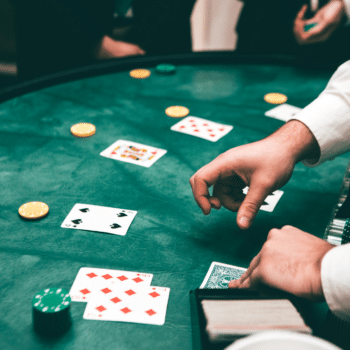Why do we engage in behavioral addictions?
Some people seem to be able to regulate their behavior and avoid addiction, while others fall into the patterns of addiction to enjoy the benefits of the behavior, despite the consequences. What makes the difference in these two groups?
Ultimately, we behave the way we do because of how our brains function.
The brain is magnificently complex. As part of its function, the brain houses a network of neurotransmitters that make up a reward system to guide our behavior. This reward system motivates us to actions that help preserve our lives but also guards us against activities that hinder our survival.
Part of this survival system engages the prefrontal cortex of the brain, where impulse control and judgment occurs. When working properly, the prefrontal cortex helps identify and avoid risky behaviors. However, when the prefrontal cortex has a malfunction, especially if it is underactive, the reward system is out of balance. In these circumstances, our impulse control is diminished, increasing our susceptibility to hazardous decisions.
Why do I have low self control?
Our brains function to help us find a balance between pleasure and peril. As noted above, normal brain activity provides self-regulation to avoid risky behavior. When parts of the brain, like the prefrontal cortex, are underactive, this governance is compromised; and healthy decision making is hindered.
There are several chemicals in the brain that affect our cravings and ability to control our responses.
- Dopamine – When we engage in enjoyable activities, our brain releases a small amount of dopamine, which gives us a pleasurable feeling. Certain activities generate larger dopamine surges that make them particularly enticing, despite the risks involved in continued behaviors. Drugs and alcohol can exponentially increase dopamine levels in the brain.
- Gamma-aminobutyric acid (GABA) – This neurotransmitter helps to pacify and relax the brain. Traumas and anxiety may reduce your levels of GABA, causing you to seek out other means of calming the brain. Pleasures from the tastes of food and drink can serve as substitutes when GABA levels are depleted.
- Endorphins – Our brains use these internal chemicals to reduce pain and generate pleasure, much like the effects of morphine. Vigorous exercise (think “runner’s high”) is one means of producing these feelings.
- Serotonin – These neurotransmitters produce happy and soothing feelings. When these levels are low, we experience worry and anxiety. Carbohydrates like bread and sugar increase I-tryptophan levels, which compensates for low serotonin production.
The key to reversing our behavioral addictions is identifying the underlying reason for the addiction and re-training the brain to pursue healthy activities.



